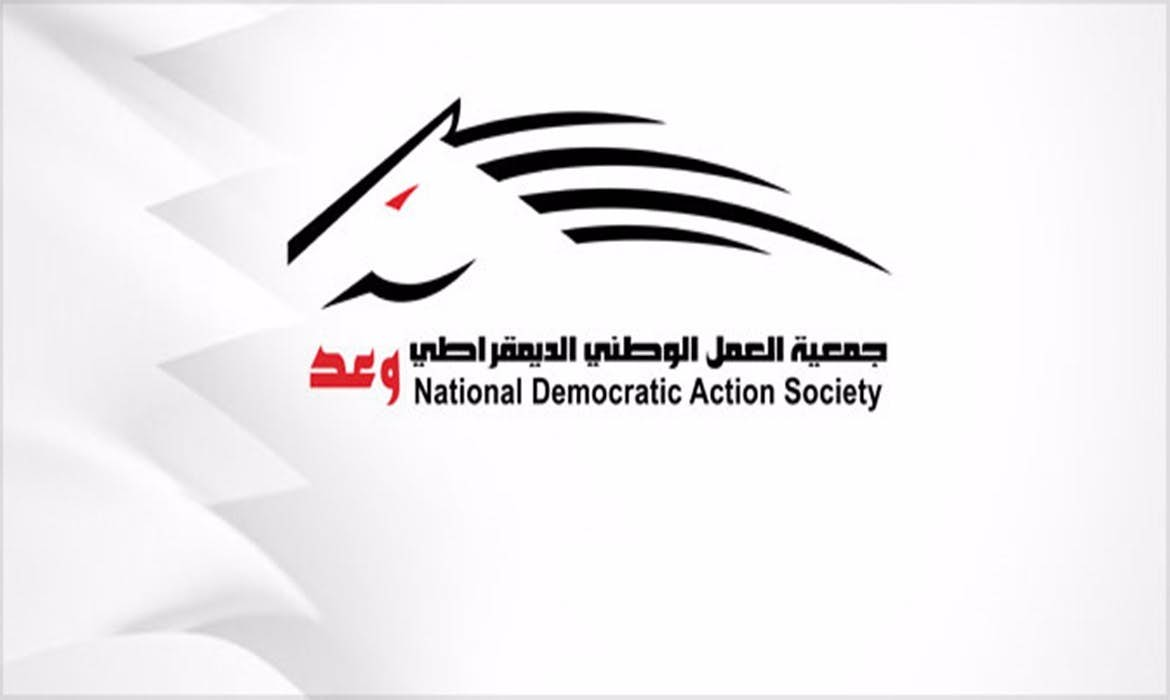NEW YORK (November 13, 2017) — The Human Rights Foundation (HRF) condemns the ongoing crackdown against Bahrain’s opposition voices. On October 26, the High Court of Appeals in Bahrain upheld a decision to dissolve the National Democratic Action Society (Wa’ad) for allegedly “inciting acts of terrorism” and “promoting the overthrow of the political regime.” A few days later, on October 30, a criminal court in Manama sentenced three relatives of prominent Bahraini activist Sayed Ahmed al-Wadaei on fabricated terrorism charges.
“Without an independent judiciary to defend them, civil society leaders are at the mercy of Bahrain’s dictator Hamad al-Khalifa, who aims to stamp out all dissenting voices,” said HRF president Thor Halvorssen. “Bahrain has always been an undemocratic, one-party state — but now, by disbanding political groups and eliminating independent media, the regime has shut down all avenues for political discourse. The country’s civil society needs international support now more than ever.”
On October 26, 2017, the High Court of Appeals in Bahrain dissolved Wa’ad, the only remaining civil society group that was allowed to operate as a “political group.” In Bahrain, formal political parties are illegal. Political groupings and societies, whose members are subject to continuous persecution and harassment, are only permitted to operate if they register with the Ministry of Justice. Last year, in July 2016, the government suspended the largest political group Al-Wefaq. Its secretary general, Sheikh Ali Salman is currently serving a nine-year prison sentence on politically motivated charges including inciting hatred, inciting a revolution, and insulting the interior ministry.
In addition to the formal disbanding of opposition groups, the al-Khalifa regime has also targeted independent news outlets. Al-Wasat, Bahrain’s only independent newspaper, was shut down in June for allegedly inciting divisions after it published an article about protests in Morocco. The newspaper’s co-founder died in 2011 after being tortured while in custody. On October 30, 2017, a former journalist for Al-Wasat, Mahmood al-Jazeeri, was among 19 people who were convicted in a mass trial on fabricated terror charges.
Sayed Ahmed al-Wadaei, who lives in exile in the United Kingdom, is the director of advocacy at the Bahrain Institute for Rights and Democracy. During the Arab Spring protests of 2011, al-Wadaei was beaten, arrested, tortured, and sentenced by a martial court. On October 30, 2017, his mother-in-law Hajer Mansoor, brother-in-law Sayed Nizar al-Wadaei, and cousin Mahmood Marzouq were sentenced to three years of imprisonment in response to the activist’s criticism of the regime. They were charged under Bahrain’s anti-terrorism law after being forced to sign false confessions for allegedly placing a fake explosive in a location southwest of Manama. The accusation is based on a report that explains that Bahraini police officers found an unidentified object in the form of an “empty metal container” placed near a cardboard carton and an electrical wire. DNA and fingerprint tests have proved that there are no links between the object and the three relatives. Nevertheless, al-Wadaei’s relatives were sentenced in absentia, even though the prosecution presented no evidence to prove that they committed the crime. Although the object was found in January 2017, it was not until March 2017, when al-Wadaei addressed Bahrain’s human rights abuses at the 34th session of the U.N. Human Rights Council, that his relatives were arrested. Bahraini officials also arrested al-Wadaei’s wife and son after the activist participated in a London protest against King Hamad on October 26, 2017.
“Authoritarian regimes typically use vague and overly broad incitement and insult laws in order to asphyxiate legitimate dissent. The sentence against al-Wadaei's relatives and the dissolution of Wa’ad are prime examples of this illegal trend,” said Celine Assaf Boustani, international legal associate at HRF. “A distinction should be made between protected speech that discusses or questions the state of government affairs and speech that purposely advocates or incites violence. Bahrain’s actions in these cases violate international law, including the right to freedom of expression under Articles 19 and 20 of the International Covenant on Civil and Political Rights, of which Bahrain is a signatory.”
The Human Rights Foundation (HRF) is a nonpartisan nonprofit organization that promotes and protects human rights globally, with a focus on closed societies.
For press inquiries, contact Prachi Vidwans at (212) 246-8486 or [email protected].
TAKE ACTION.
Condemn the al-Khalifa regime’s shutdown of Wa’ad.
Condemn the arbitrary sentencing of Sayed Ahmed al-Wadaei’s relatives.
Condemn the shutdown of the Al-Wasat newspaper.
CONTACT:
Jamal Fares Alrowaiei, Permanent Representative
Permanent Mission of the Kingdom of Bahrain to the United Nations
Email: [email protected]
Phone: 212-223-6200
Address: 866 Second Avenue,New York, NY 10017
